GO VIRAL! is a 5-minute game that helps protect you against COVID-19 misinformation. You’ll learn about some of the most common strategies used to spread false and misleading information about the virus. Understanding these tricks allows you to resist them the next time you come across them online.
Tagged with fake news
Digital literacy is about understanding that just because we want something to be true, it doesn't make it true.
We need to to teach ourselves and our young people to stop, think and check before sharing untruths on social media.
There has been a number of posts on Facebook claiming that the Coronavirus Act means that children can be taken out of school without their parents’ or carers’ permission and detained for 14 days if they are suspected to have Covid-19. Others have claimed children can be detained for 14 days without informing their parents, and only a teacher needs to be informed.
For facts, not rumours, read more.
Misleading and harmful online content about Covid-19 has spread "virulently" because the UK still lacks a law to regulate social media, an influential group of MPs has said.
Members of the BBC's anti-disinformation team offer insider tips on how to verify photos and videos online - so that you can be sure that what you're seeing is reliable.
A paramedic has described how a patient with symptoms of a heart attack refused treatment after reading on Facebook that she would die if she went to hospital during the Covid-19 crisis.
The account was among hard-hitting testimony given by medics to MPs about the damage misinformation on social media is doing to frontline healthcare.
The doctors called for tougher action on Google, Twitter and Facebook.
All three firms told MPs they were working hard to tackle the problem.
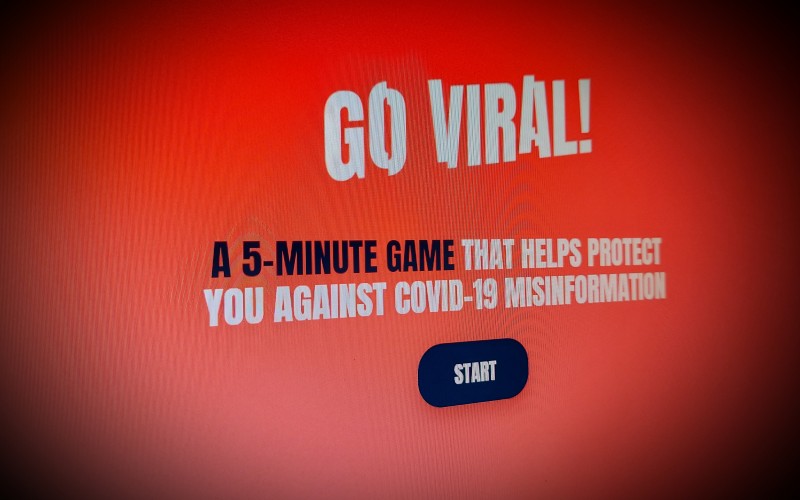
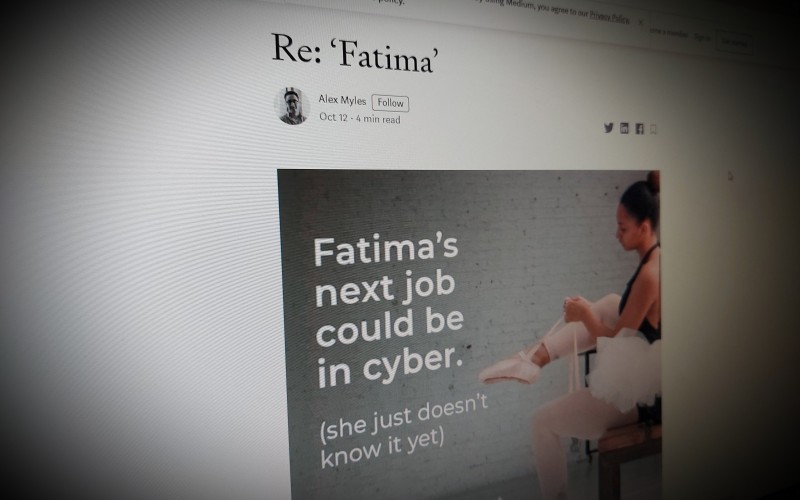
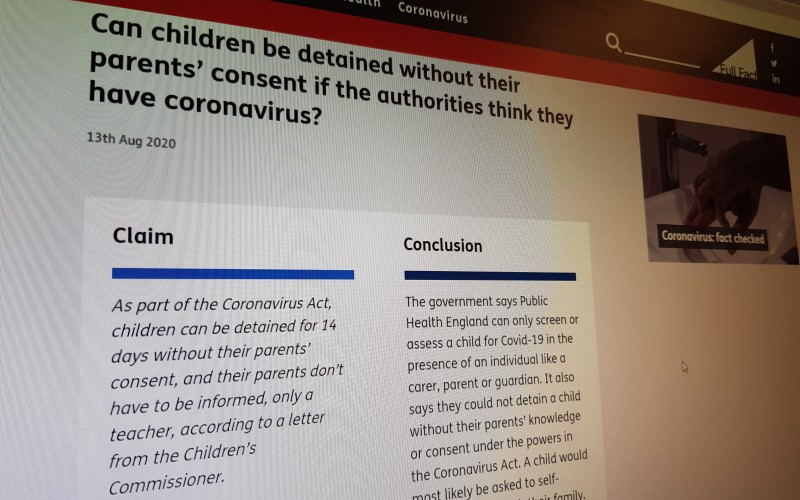
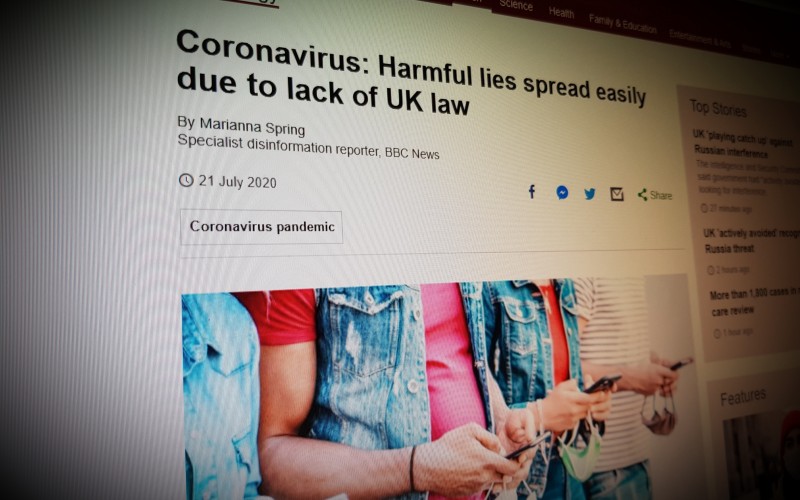
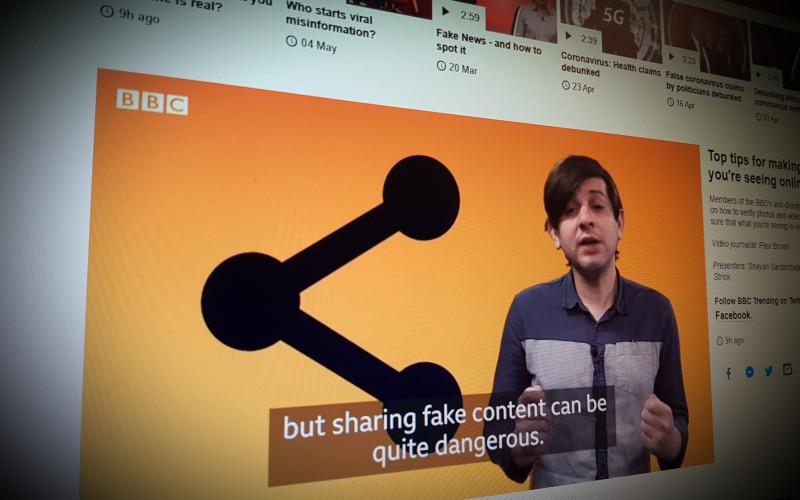
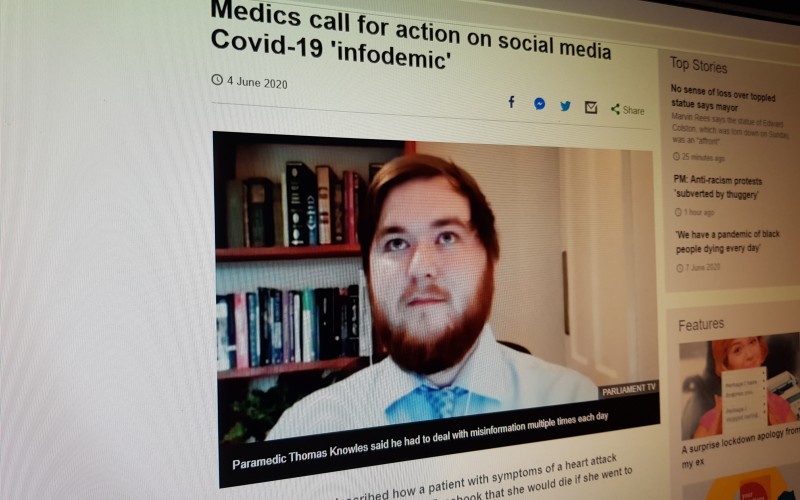
Comments
make a comment